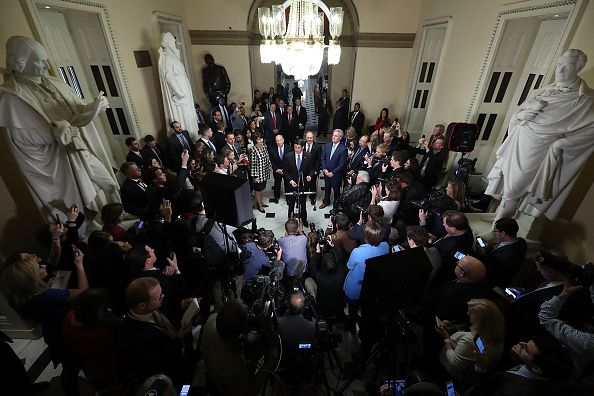
With Congress approving sweeping reforms and President Donald Trump poised to sign the Tax Cuts & Jobs Act into law, the next step for CEOs is maximizing the benefits for themselves and their organizations.
The 21 percent corporate tax rate and 20 percent rate for pass-through businesses have made the biggest headlines on the business side of the Republican tax plan, but areas such as executive compensation could also be impacted once the bill becomes law.
The way many public companies have been structuring executive compensation under Section 162(m) would change under the new law, with the elimination of the performance-based compensation exception that’s been is use for two decades. This means that all compensation of more than $1 million per year paid to a covered executive employee will become non-deductible in 2018 (and qualifying covered employees will be expanded to include a company’s CFO).
“We’re going to see C-corporations trying to convert to S-corporations, and figuring out where they might end up better off on a long-term strategy.” – James W. Cole, BST & Co.
“On the public company side, it’s going to have some implications,” James W. Cole, tax partner with BST & Co. CPAs, LLP told Chief Executive.
As a result, companies that expect an executive’s compensation to top $1 million may look to expedite those employees’ compensation from 2018 to 2017 in order to take advantage of the deductions before the new year. While that would be a good financial move for companies, it could cost executives some tax savings.
“This would run contra to the executive’s desire, because they’re looking at lower tax rates next year,” Cole says.
And with the performance-based compensation exception eliminated, companies may turn to options such as deferred compensation and incentive stock options when determining executive compensation, as those areas were left untouched in tax reform plan.
“Everybody is going to try to figure out what fits into the new definitions and what doesn’t,” Cole says. “You’ll see a lot of creative structuring where people feel that a design of a particular package will slide by the new regulations.”
Moving forward under the new tax regulations, large corporations are going to be working through a combination of new impacts.
“Corporations will see arcane things, like the deferred tax liability computations on their financial statements being totally reworked under a lower corporate tax rate provision,” Cole says. “So we’ll see some funky tax provisions for some of these companies on their 2017 reporting because of the deferred taxes being readjusted to a lower future tax rate.”
Large privately-held companies should be focusing on the overall structure of their organizations moving forward, to make sure they are achieving the greatest benefits from the new regulations—both for corporations and pass-though companies.
“We’re going to see C-corporations trying to convert to S-corporations, and figuring out where they might end up better off on a long-term strategy,” Cole says. “We’ll see new divisions arise and maybe become a separate stand-off company that is a pass-through entity.”
For small- to mid-sized companies with gross receipts under $25 million, the cap for the ability to be able to use cash-basis method of accounting will be raised from a $10 million threshold to $25 million, which means businesses in that range will need to figure out what works best for their organizations moving forward.
“You’re going to see a lot of companies in that space take a look to see whether or not cash basis works better for them,” Cole says. “A lot of the time it does, just by the ability to be able to manage profitability through cash management—not paying taxes on receivables until you the money.”







